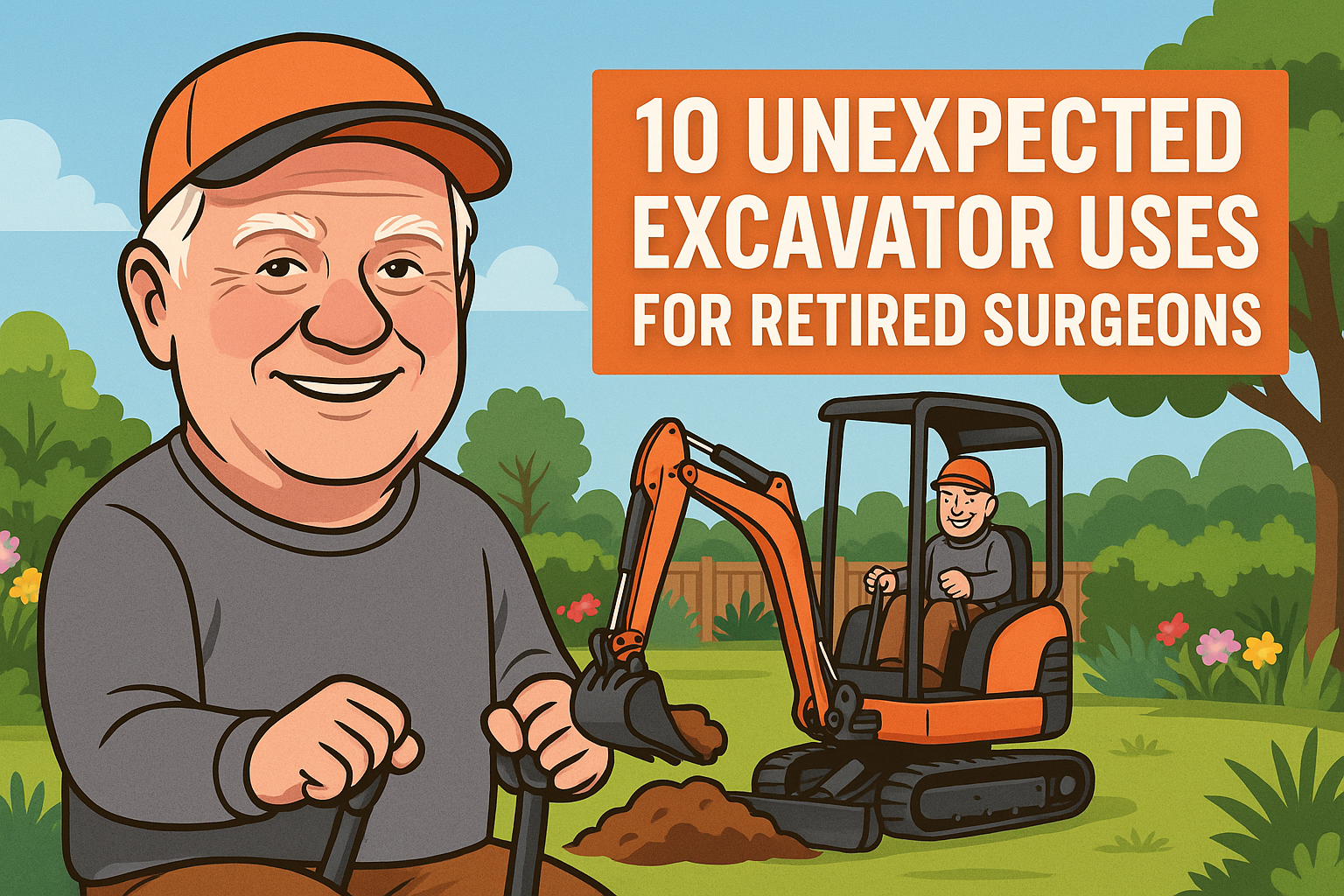**The Future of Surgery with AI: Are We Ready for Robo-Scalpels?**

A few weeks ago, I sat in my doctor’s office while he conducted the usual inquisition—medical history, current complaints, and whether I’d been “taking my medication as prescribed” (of course not). While we chatted, an AI system quietly transcribed everything, distilled the key facts, and produced a clinical summary more coherent than any doctor’s notes I’ve ever seen. It even corrected his grammar.
That was the moment I realised: AI isn’t just creeping into medicine—it’s taking over. And if AI can organise my chaotic ramblings into a sensible medical summary, what’s stopping it from planning, assisting, or even performing surgery?
In this article, we’ll explore:
1. How AI is Already Stalking Your Surgeon
2. Robots with Scalpels: Should We Be Worried?
3. Augmented Reality: Because Your Surgeon Needs an Upgrade
4. AI vs. Human Decision-Making: Who’s Really in Charge?
5. What Happens When AI Makes a Mistake?
6. Will Surgeons Become Obsolete? (Spoiler: No, But They’ll Complain a Lot)
7. The Future: AI-Powered Surgery Without the Horror Stories
—
### 1. How AI is Already Stalking Your Surgeon
Think AI is still futuristic? Think again. Your surgeon is already using AI—probably without realising it.
– AI helps **analyse** preoperative scans and suggests the best surgical approach.
– It warns of complications before they happen by crunching millions of patient records.
– It assists with robotic surgery, guiding robotic arms with an accuracy no human can match (or at least, no surgeon after a long night on call).
Hospitals are adopting AI systems not just because they’re effective, but because they never get tired, never forget steps, and don’t get sued for being rude to patients.
—
### 2. Robots with Scalpels: Should We Be Worried?
Surgical robots aren’t new—the da Vinci Surgical System has been around since 2000, giving surgeons superhuman dexterity and turning keyhole surgery into an art form. But now, AI is making these machines smarter and more autonomous.
The Smart Tissue Autonomous Robot (STAR) can already perform soft tissue surgery without human hands. In trials, STAR outperformed experienced human surgeons in stitching up pig intestines (a glamorous test subject, no doubt).
So should we be nervous? Maybe. AI is great, but I’d still like a human in the room when my appendix is being removed—**just in case**.
—
### 3. Augmented Reality: Because Your Surgeon Needs an Upgrade
If AI-assisted surgery isn’t enough, now we’re adding augmented reality (AR) to the mix.
Imagine your surgeon wearing AR goggles that project a live, 3D map of your insides onto your body in real time. They can “see” through layers of tissue before making an incision.
It sounds like a sci-fi upgrade, but Microsoft HoloLens is already making this a reality. Neurosurgeons can now navigate brain tumours with AI-guided holograms, and orthopaedic surgeons can precisely place implants using AI overlays.
It’s the closest thing to X-ray vision medicine has ever seen—except it actually works.
—
### 4. AI vs. Human Decision-Making: Who’s Really in Charge?
Surgeons pride themselves on their expertise. But now AI analyses thousands of surgeries and tells them what to do.
– AI can predict which patients will develop complications based on real-time data.
– It adjusts surgical plans mid-operation if something unexpected happens.
– It learns from every mistake—unlike some surgeons I’ve worked with.
Some doctors hate this. They argue: Who should we trust—an AI model trained on billions of data points or a surgeon with 30 years of experience and a strong opinion?
But and its a biggie .Who pays when AI steers your doctor wrong
The answer: probably both. AI makes surgeons better, but it’s not replacing their judgement (**yet**).
—
### 5. What Happens When AI Makes a Mistake?
Here’s the problem: AI makes decisions based on past data. But what happens when it encounters a case it’s never seen before?
– Will it freeze?
– Will it make something up?
– Will it refuse to operate unless the patient is an “exact match” for its training data?
AI isn’t perfect—it has biases, it can misinterpret data, and it can’t handle sarcasm (which is a shame, because most surgeons are full of it).
So when AI inevitably screws up, who’s responsible? The hospital? The AI developer? The human surgeon who trusted it?
The legal headaches are just beginning.
### 6. Will Surgeons Become Obsolete? (Spoiler: No, But They’ll Complain a Lot)
AI won’t replace surgeons, but it will change their jobs.
Instead of spending hours cutting and stitching, future surgeons will:
– **Oversee** AI-driven procedures
– Focus on complex cases AI can’t handle
– Complain that AI is “stealing their autonomy”
Think of it like airline pilots—planes can fly themselves, but we still want a human in the cockpit. Surgery will be the same. AI will do the routine work, but humans will still be in control.
And yes, surgeons will still exist—just with fewer late-night emergency calls (which, frankly, they won’t complain about).
—
### 7. The Future: AI-Powered Surgery Without the Horror Stories
Let’s be optimistic. The future of AI-driven surgery isn’t about replacing humans—it’s about making surgery safer, faster, and more precise.
– AI will cut surgical errors in half (probably).
– It will reduce complications and improve recovery times (definitely).
– It will make surgery less of an art and more of a science (whether that’s a good thing is up for debate).
The best part? Surgeons will spend more time actually thinking and less time performing tedious, repetitive tasks.
And maybe—just maybe—my next doctor’s appointment will involve an AI that can detect my sarcasm and respond in kind.
—
### Final Thought: Should You Trust an AI Surgeon?
If you needed surgery tomorrow and an AI-powered robot was the best option, would you trust it?
If you hesitated, you’re not alone. AI may be smarter than ever, but there’s still something reassuring about a human surgeon’s experience, intuition, and ability to improvise when things go wrong.
For now, AI will assist, not replace. But who knows? Give it a decade, and the best surgeon in the world might not have a pulse.
**Would you be okay with that?**
I look at the future, wishing to be part of it, but grateful for my time in the sun.




Leave a Reply